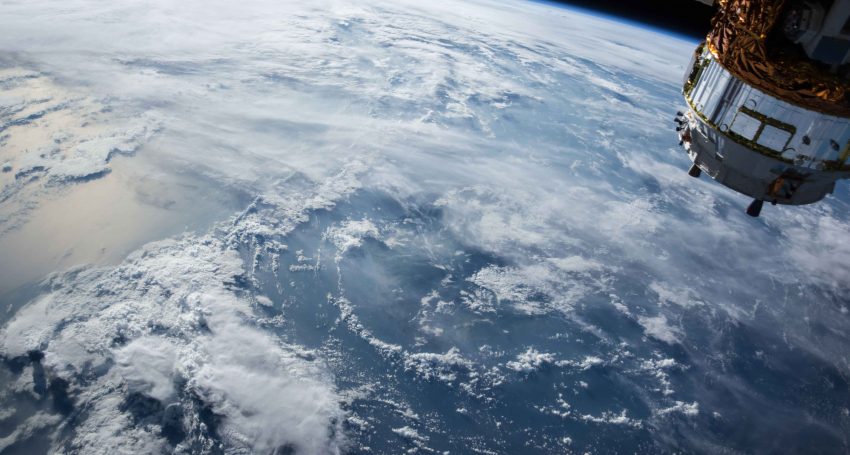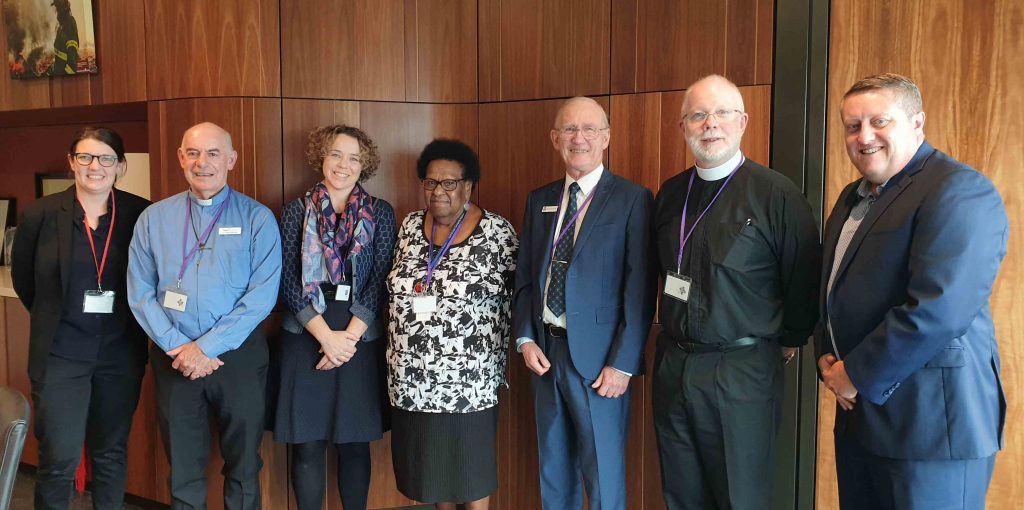World Environment Day: #BeatAirPollution
Features
Fr Peter Moore, Chair of Angligreen, tells us how we can help #BeatAirPollution as part of World Environment Day, which will be held on Wednesday 5 June this year

World Environment Day is the United Nations Day for encouraging worldwide awareness and action to protect our environment. This year’s World Environment Day is Wednesday 5 June. It began in 1974, and is now a global platform for public outreach, widely celebrated in over 100 countries. Individuals are encouraged to take care of the earth.
Each World Environment Day is organised around a theme that draws attention to a particularly pressing environmental concern. The theme for 2019 is ‘#BeatAirPollution ’.
The World Health Organization reports that 9 out of 10 people in the world breathe polluted air and seven million premature deaths are caused by air pollution each year. But we can #BeatAirPollution. The question is, ‘What will you do this #WorldEnvironmentDay?’
How much pollution we breathe is dependent on many factors, such as access to clean energy for cooking and heating, the time of day and the weather.
Air pollution comes from five main human sources which spew out a range of substances harmful to human health.
Household
The main source of household air pollution is the indoor burning of fossil fuels, wood and other biomass-based fuels to cook, heat and light homes. Around 3.8 million premature deaths are caused by indoor air pollution each year, most in the developing world.
Industry
In many countries, energy production is a leading source of air pollution. Coal-burning power plants are a major contributor, while diesel generators are a growing concern in off-grid areas. Industrial processes and solvent use in the chemical and mining industries also pollute the air. But, policies and programs aimed at increasing energy efficiency and production from renewable sources have a direct impact on a country’s air quality.
Advertisement
Transport
The global transport sector accounts for almost a quarter of energy-related carbon dioxide emissions and this proportion is rising. Transport emissions have been linked to nearly 400,000 premature deaths. Almost half of all deaths by air pollution from transport are caused by diesel emissions, while those living closest to major traffic arteries are up to 12% more likely to be diagnosed with dementia.
Reducing vehicle emissions is an important intervention to improve air quality, especially in urban areas. Policies and standards that require the use of cleaner fuels and advanced vehicle emissions standards can reduce vehicle emissions by 90 percent or more.
Agriculture
There are two major sources of air pollution from agriculture: livestock, which produces methane and ammonia, and the burning of agricultural waste. Methane emissions contribute to ground-level ozone, which causes asthma and other respiratory illnesses. Methane is also a more potent global warming gas than carbon dioxide – its impact is 34 times greater over a 100-year period.
There are many ways to reduce air pollution from agriculture. People can move to a plant-based diet and/or reduce food waste, while farmers can reduce methane from livestock by optimising feed digestibility and improving grazing and grassland management.
Advertisement
Waste
Open waste burning and organic waste in landfills release harmful toxins. Globally, an estimated 40 percent of waste is openly burned. The problem is most severe in urbanising regions and developing countries.
Improving the collection, separation, and disposal of solid waste reduces the amount of waste burned or landfilled. Separating organic waste and turning it into compost or bioenergy improves soil fertility and provides an alternative energy source. Reducing the estimated one-third of all food that is lost or wasted can also improve air quality.
Other sources
Not all air pollution comes from human activity. Volcanic eruptions, dust storms and other natural processes also cause problems. Sand and dust storms are particularly concerning. Fine particles of dust can travel thousands of miles on the back of these storms, which may also carry pathogens and harmful substances, causing acute and chronic respiratory problems.
Why should we act?
Christians and other faith groups believe that God created the universe, including our planet with its web of life (biosphere). Humans are part of that biosphere and are charged with caring for it. We have not done a good job of it as our consumption of the Earth’s resources requires 1.6 earths to regenerate it, however, we have only one earth. We need to act now to reduce consumption and clean up the planet, including address air pollution. The Anglican Communion and our Diocese have listed one of the Five Marks of Mission as “To strive to safeguard the integrity of creation and sustain and renew the life of the earth”.
What can we do to reduce our air pollution?
We can reduce our waste and recycle, reuse or re-purpose things. We can ensure that things we purchase are sustainably produced, energy efficient, and have as clean emissions as possible. We can sort and recycle our waste carefully and use Council recycle programs and recycle soft plastics through the RED Scheme at many supermarkets. For ink cartridges, batteries, paint and chemicals, check out the Recycling Near You website.
Transport pollution is reduced by using public transport, cycling and walking where possible, purchasing more fuel/energy efficient cars and keeping them well maintained. Reducing energy consumption in the home with LED lighting, using efficient appliances and keeping aircon temperatures within 100 of exterior temp are also achievable ways to help reduce carbon emissions.
The Angligreen Facebook page and the monthly Angligreen Newsletter also provides news, information and tips. Subscribe to the Angligreen Newsletter.

Faith leaders visit the Department of Environment and Science on 30 April 2019 for a Department briefing (L-R): Sonya Litz (Ministerial Advisor), Fr Peter Moore (Angligreen), Jen Basham (Justice Unit Coordinator), Aunty Rose Elu, The Rev’d Dr Clive Ayre (UCA & QCEN), The Very Rev’d Dr Peter Catt (Chair SRC) and Dean Ellwood (Deputy Director-General, Environmental Services and Regulation, Department of Environment and Science)






